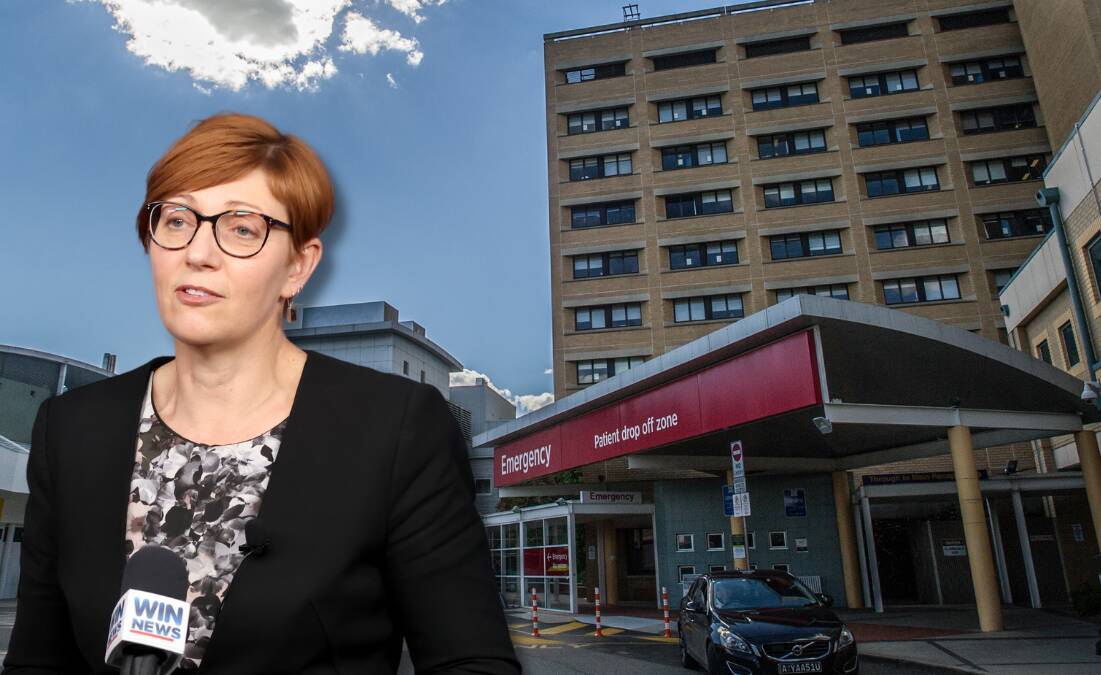
Canberrans suffering from gynaecological cancers may be forced to continue to travel for surgery as the nation's capital is in jeopardy of losing the opportunity for a permanent surgical unit.
The ACT government committed to establishing a service earlier this year following sustained pressure from doctors, nurses and patients.
But health authorities will not immediately expand the service, which has made it difficult to recruit surgeons in the incredibly rare sub-speciality.
Health Minister Rachel Stephen-Smith was quick to reassure there are still plans to establish the service and the surgery capacity will expand once the caseload increases. However, staff are fearful authorities will not follow through on this promise.
There was a recruitment process for a gynaecologist-oncologist earlier this year and there was a candidate selected, however, Canberra Health Services only offered the surgeon two half days of surgery a month.
This has resulted in a stalemate as there were no negotiations to immediately increase the number of days and an agreement could not be reached with the candidate. This is despite there being only about 60 gynaecologist-oncologists in Australia who would be able to find full-time work in Sydney or Melbourne.
Canberra Health Services did not provide the exact number of candidates who applied for the position only that it was "fewer than five".
A group of doctors had been lobbying the ACT government to establish a permanent unit with a warning Canberrans suffering from the cancers could face "potentially compromised" care.
More than 3000 people signed a petition in support of the service and NSW Labor parliamentarians even called on the territory government to establish the unit, as it would service the surrounding NSW region.
Many women suffering from gynaecological cancers have to travel to Sydney for surgery, which is often invasive and has a long recovery period.
The doctors, who lobbied for more than three years, said a weekly clinic was needed and there was sufficient demand for this. This need was reflected by the group over several meetings and letters to the government over the years.
Dr Leon Foster was a key part of this lobbying. He is a gynaecologist-oncologist and a Canberra local who was prepared to start the clinic.
He was selected as the candidate in the recruitment process but Canberra Health Services only put forward an offer of two half days a month for surgery while the position is for three days a week. Overall, it would mean there would only be one full day of surgery a month.
The existing service already does two half days of surgery a month, meaning there will not be an immediate increase in capacity.
There has never been a permanent public unit in the nation's capital, instead the Royal Hospital for Women has provided a fortnightly clinic to Canberra for about 30 years.
This service is set to finish at the end of this year. When asked about this, a Canberra Health Services spokesman only said the organisation was in discussion with the Royal Hospital fro Women for "continuity of service" but provided no further detail.
If the service does not continue it would mean there would be no local public surgery options for gynaecological cancers by the end of the month.
People working within the fortnightly clinic have expressed alarm to The Canberra Times over Canberra Health Services having no immediate plans to expand the clinic.
There are fears among staff that Canberra Health Services will not follow through with expanding the service.
One person said Dr Foster needed support but instead had been "treated like dirt".
A spokesman from Canberra Health Services said there were no plans to reduce the service, instead the clinic would expand as the caseload increased.
"The current theatre allocation for gynaecology oncology surgery at the Canberra Hospital is one theatre list per fortnight. A phased approach has been agreed to expand theatre lists as the service evolves over time," he said.
"The candidate was aware of the terms and conditions of the position and the intention to increase theatre time as the service evolves."
The Canberra Times has been told the candidate was not aware of the offer for two half days for surgeries and asked about the potential to extend this but Canberra Health Services was not forthcoming.
The Canberra Health Services spokesman said the candidate had rejected the offer.
The spokesman said in the days when there is no surgery there would be increased patient consultations and would allow for the start of "local multi-disciplinary team meetings".
But Canberra Health Services has now had to recommence recruitment. The spokesman said this process would be a national process.
Ms Stephen-Smith announced the intention to establish the unit in August. She said the government was still committed to this.
"The government remains committed to expanding gynaecological oncology services in the ACT and is working to deliver on this commitment as soon as possible, in line with the ACT Health services plan," she said.
"I am not in a position to comment on individual recruitment matters at Canberra Health Services but have been assured that there is no plan to reduce surgery days, and indeed the plan is to expand theatre allocation and clinics for this service as the caseload increases."







